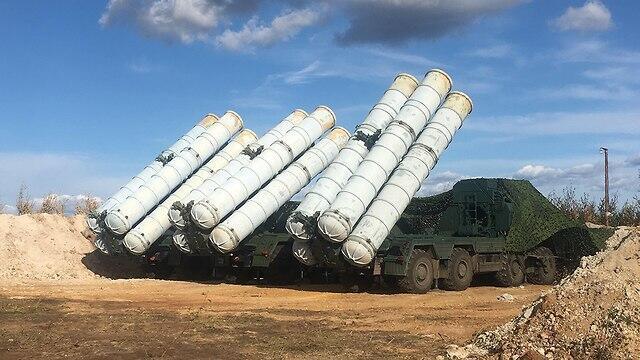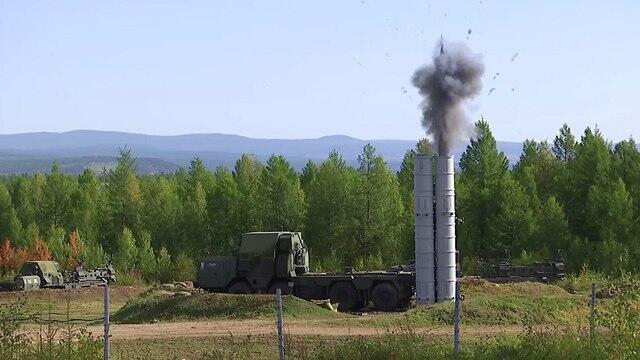Getting your Trinity Audio player ready...
Russia's deployment of the S-300 anti-aircraft defense system in Syria risks fuelling military escalation and hindering prospects for a political solution to the seven-year conflict, France's Foreign Ministry said on Friday.
and Twitter
Moscow confirmed earlier it had delivered the surface-to-air missile system after the downing of a Russian spy plane by Syrian forces in September. Russia accused Israel of being indirectly responsible for that act because the Syrian forces had been firing at attacking Israeli jets.
"France notes with concern the delivery by Russia of sophisticated anti-aircraft capabilities for the benefit of the Syrian regime," Foreign Ministry spokeswoman Agnes von Der Muhll told reporters in an online briefing.
"Amid regional tensions, the delivery of such equipment by Russia contributes to maintaining the risk of military escalation and removing the prospect of a political settlement of the Syrian crisis," she said.
On Tuesday, Russian Defense Minister Sergei Shoigu officially informed Russian President Vladimir Putin that an S-300 anti-aircraft missile system has arrived in Syria, during a meeting broadcasted by Rossiya 24 TV.
"The work was finished a day ago," Shoigu said. He also added that it will take three months to train Syrian personnel to operate the system.
Last week it was reported that two Russian Air Force 124 Antonov military aircrafts landed in the Russian base near Latakia ,transporting equipment and logistics, which had allegedly been loaded onto the planes along the way.
Russian Foreign Minister Sergey Lavrov later was asked about the S-300s at a news conference and responded: "The deliveries started already."
He added that "the measures we will take will be devoted to ensure 100 percent safety and security of our men in Syria, and we will do this."
A spokesman for a Russian company producing electronic warfare systems says that their deployment to Syria will help protect the country's air defense assets and fend off enemy air raids.
Vladimir Mikheyev of Radioelectronics Technologies said Friday in remarks carried by the Interfax news agency that Krasukha and Zhitel electronic countermeasure units will place Syria's air defenses under an "electronic umbrella," making it hard to spot and attack them.



